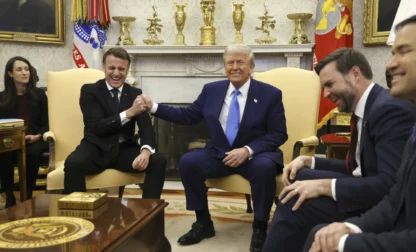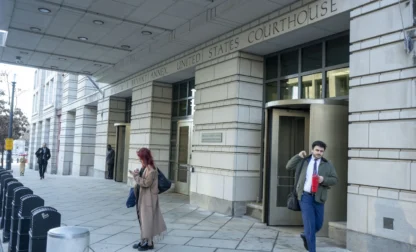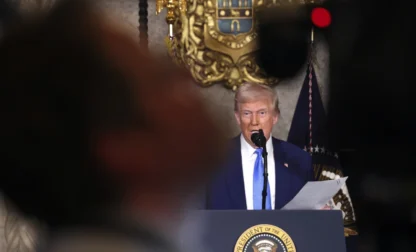BEIRUT (AP) — Major international news organizations sent a letter to the leadership of the armed opposition in Syria Wednesday, calling for urgent action against rebel groups increasingly targeting journalists for kidnappings.
The letter, signed by 13 news organizations including The Associated Press, is in response to a sharp rise in the kidnapping of journalists while on assignment in opposition-held areas in northern Syria.
The widespread seizure of journalists is unprecedented and has so far been largely under-reported by news organizations in the hope that keeping the kidnappings out of public view may help with negotiating the captives’ release. The scale of the abductions — more than 30 are believed to be currently held — and the lack of response to individual mediation efforts have encouraged some families and employers to speak out.
Most kidnappings since the summer have taken place in rebel-held territories, particularly in chaotic northern and eastern Syria, where militant al-Qaida-linked groups hold influence. Among the most dangerous places are the northeastern city of Raqqa, which was taken over by al-Qaida militants shortly after it became the first city to fall entirely into rebel hands; the eastern Deir el-Zour province; the border town of Azaz; and the corridor leading to Aleppo, once a main route for journalists going into Syria.
“As long as kidnappings are permitted to continue unabated, journalists will not be willing to undertake assignments inside Syria, and they will no longer be able to serve as witnesses to the events taking place within Syria’s borders,” the letter said.
Signatories to the letter are the AP, Agence France Presse, Reuters, BBC, The New York Times, The Washington Post, The Wall Street Journal, Atlantic Media, The Economist, Getty Images, The Guardian, the Los Angeles Times and The Telegraph.
The open letter is being sent to the leadership of the Western-backed mainstream Free Syrian Army and to individual armed groups including the Islamic Front, an umbrella organization of six of the most powerful brigades in Syria.
Syria’s rebels are a disparate group of brigades and battalions, increasingly dominated by Islamic extremists, including al-Qaida-linked groups such as the Islamic State of Iraq and the Levant and Jabhat al-Nusra.
The closest thing to a central command is the Supreme Military Council of the Free Syrian Army, headed by Gen. Salim Idris, a secular-minded moderate. But he holds limited sway over the myriad groups inside Syria, some of which have broken away from the Free Syrian Army, announcing that the group did not represent them. Infighting between the extremists and moderates is on the rise, undermining their fight against President Bashar Assad.
While jihadi groups are believed responsible for most kidnappings since the summer, government-backed militias, criminal gangs and rebels affiliated with the Free Syrian Army also have been involved. Their motives have ranged from ransom to prisoner exchanges.
The Syrian National Coalition, Syria’s main opposition group in exile considered to be the political arm of the Free Syrian Army, condemned the kidnapping of journalists in a statement issued Wednesday.
“The Syrian Coalition and the General Staff of the Free Syrian Army reiterate their commitment to exerting all efforts necessary to secure the release of all kidnapped persons and provide protection to journalists and human rights activists operating in Syria,” the statement said.
The New York-based Committee to Protect Journalists says approximately 30 foreign and Syrian journalists are missing and 55 have been killed since Syria’s civil war began in early 2011. CPJ also has documented at least 26 other journalists who disappeared this year but are now safe.
Many of the abduction cases go unreported at the request of the families or employers. News organizations on a case-by-case basis are inclined to respect such requests, regardless of the identity of the person abducted, if they are convinced that publication would increase the danger for the victim.
On Tuesday, the families of two Spanish journalists abducted nearly three months ago appealed publicly for their release, after failing to make contact with the captors via intermediaries. Javier Espinosa, Middle East bureau chief of El Mundo newspaper, and Ricardo Garcia Vilanova, a freelance photographer who was traveling with him, were taken captive Sept. 16 by members of the Islamic State of Iraq and the Levant at a checkpoint in the northeastern Raqqa province, the families said.
In the letter, the 13 news organizations said it was “imperative” for the leadership of the armed opposition to commit itself to assuring that journalists can work within Syria, secure from the threat of kidnapping.
“Among other things, we ask the leadership to assist in identifying those groups currently holding journalists and take the steps necessary to bring about their release,” the statement said.



